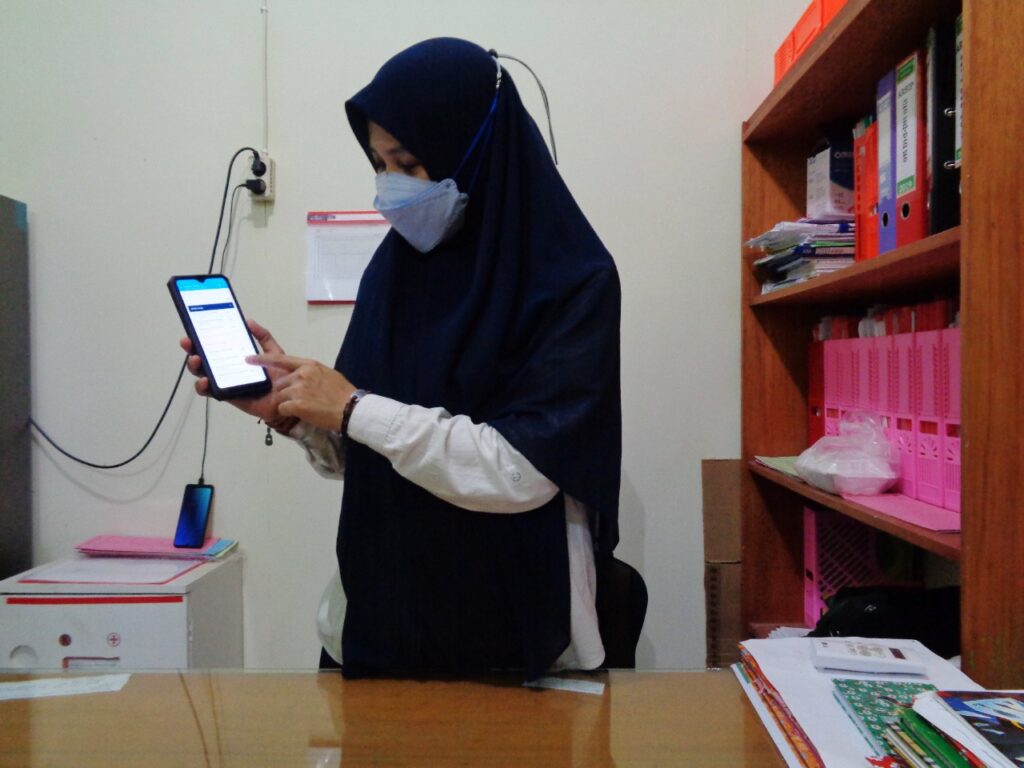
Women in the health care industry in Indonesia’s rural areas have overcome the odds of the digital divide amid the Pandemic
Indonesia’s healthcare workers are under immense pressure during the COVID-19 pandemic UNDP’s, SMILE (Sistem Monitoring Imunisasi Logistik Secara Elektronik)  program, an innovative technological solution that aims to strengthen Indonesia’s vaccine supply chain has enabled women in the health care field enhance their skills and enhanced their ability to deliver critical health care, especially in Indonesia’s remote areas.
SMILE has successfully been rolled out across 34 provinces and provided training for around 20,000 frontline health workers— an estimated 90 percent of whom are women— while the expansion continues
Advances in digital technology have enabled us to innovate at unprecedented levels. Despite its growth, however, inequality in digital literacy remains a challenge
The ‘digital divide’ in the field of Information and Communication Technology (ICT) is even more apparent during the pandemic with women having significantly less access to technological advancements, which risks them being left behind as the country works on achieving the Sustainable Development Goals (SDGs).
The team working on the SMILE project discussed the rollout of the programme with vaccine coordinators across Indonesia, who shed light on the role women played in the expansion of the programme.
SMILE was initiated in 2018 as an initiative to support the Ministry of Health for immunisation program. Our vaccine coordinator shared the experience that when it was first piloted, the training was attended mostly by mothers, some of whom were pregnant at the time. One participant in the city of Bogor was 38 weeks pregnant and took part in a two-day training for the SMILE application. As the coordinator spent time in training these women, he noted their determination to support the program and their commitment to understanding the newly introduced technology while being at very advanced stages of pregnancy.
In the province of Aceh, our vaccine cold-chain manager highlighted the ability of Public Health Officers, the majority of whom are women, to juggle their commitments to their professional and family lives especially during the pandemic. One health care worker on maternity leave continued to carry out her work in the immunization program by monitoring stocks from home, which helped during the hand over to colleagues.
Similarly in Gorontalo province, women balanced their commitments to their home while also building a strong bond with their communities via their professional lives.
These unique attributes of our strong women has played a vital role in the success of our program implementation. During the pandemic, with most meetings being held via online platforms, we heard about workers using these methods to train their staff – a significant feat in remote areas of the country without good internet facilities.
The digital leap to using online meeting platforms to managing vaccines data through her phone is representative of a scaling up in digital literacy in rural parts of the country.
These inspiring stories should enable stakeholders to reflect and act towards building an inclusive environment and close the digital divide. Through empowering women in ICT, we will not only benefit from the additional information that can be received but improve women’s livelihoods and ensure that we leave no one behind.
–
Text by Nadine Hassan
Edited by Ranjit Jose and Suryo Tomi
